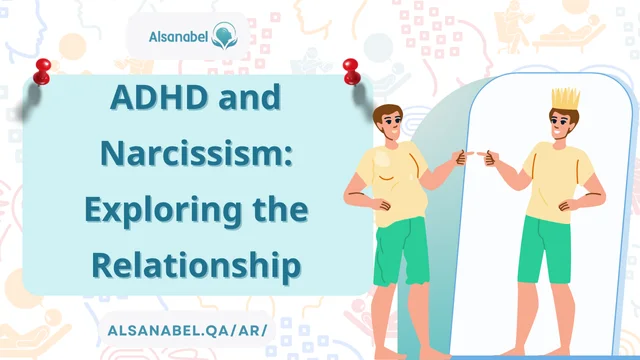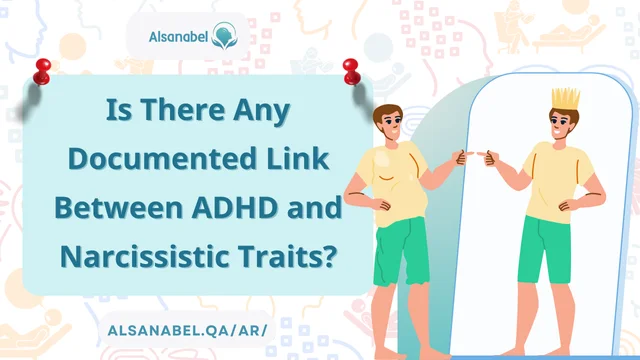
Attention-Deficit/Hyperactivity Disorder (ADHD) and narcissism are two distinct psychological constructs, yet they share certain behavioral and emotional traits that can sometimes lead to confusion or misdiagnosis. Understanding the potential connection between ADHD and narcissism is crucial for accurate diagnosis, effective treatment, and improved outcomes. This article delves into the ADHD and narcissism relationship, exploring how narcissistic traits in ADHD may manifest, the research on their interplay, and the implications for treatment. By examining the ADHD and personality disorders landscape, we aim to provide a comprehensive understanding of how these conditions intersect and how clinicians can differentiate between them.
Is There Any Documented Link Between ADHD and Narcissistic Traits?
To begin understanding the connection between ADHD and narcissism, it’s essential to explore whether a documented link exists between the two. While ADHD is a neurodevelopmental disorder characterized by inattention, hyperactivity, and impulsivity, narcissism is a personality trait characterized by grandiosity, a need for admiration, and a lack of empathy. Despite their differences, some overlapping behaviors and traits have been observed.

Overlapping Traits
- Impulsivity: Both ADHD and narcissism can involve impulsive behavior, though the motivations may differ.
- Difficulty with Relationships: Individuals with ADHD may struggle with social interactions due to inattention or impulsivity, while those with narcissistic traits may struggle due to a lack of empathy or self-centeredness.
- Emotional Dysregulation: Both conditions can involve challenges in managing emotions, though the underlying causes may vary.
Research Findings
- Limited Direct Link: While there is no definitive evidence that ADHD directly causes narcissism, some studies suggest that individuals with ADHD may exhibit narcissistic traits as a coping mechanism for their symptoms.
- Comorbidity: ADHD and narcissistic personality disorder (NPD) can coexist, though this is relatively rare. More commonly, individuals with ADHD may display narcissistic traits without meeting the full criteria for NPD.
How Can ADHD Symptoms Sometimes Mimic Narcissistic Behavior?
The connection between ADHD and narcissism can be further understood by examining how ADHD symptoms may mimic narcissistic behavior. This overlap can complicate diagnosis and treatment, making it essential to differentiate between the two.
Inattention and Self-Centeredness
- ADHD: Inattention can lead to behaviors that appear self-centered, such as forgetting commitments or not listening during conversations.
- Narcissism: Self-centeredness is a core trait, driven by a need for admiration and a lack of empathy.
Impulsivity and Grandiosity
- ADHD: Impulsivity can result in hasty decisions or interrupting others, which may be perceived as self-important.
- Narcissism: Grandiosity involves an inflated sense of self-importance and a need for excessive admiration.
Emotional Dysregulation and Lack of Empathy
- ADHD: Emotional dysregulation can lead to mood swings and difficulty understanding others’ emotions.
- Narcissism: A lack of empathy is a hallmark trait, often resulting in manipulative or exploitative behavior.
What Research Exists on the Relationship Between ADHD and Narcissism?
Research on the connection between ADHD and narcissism is still evolving, but several studies have explored the potential links and overlapping traits. Below, we summarize key findings from the existing literature.
Studies on Overlapping Traits
- Impulsivity and Grandiosity: Some studies suggest that impulsivity in ADHD can sometimes manifest as grandiosity, particularly in individuals who use narcissistic traits as a coping mechanism.
- Emotional Dysregulation: Research indicates that both ADHD and narcissism involve challenges in emotional regulation, though the underlying mechanisms differ.
Comorbidity Studies
- Rare but Possible: While comorbidity between ADHD and NPD is rare, some individuals may exhibit traits of both conditions.
- Coping Mechanisms: Individuals with ADHD may develop narcissistic traits as a way to cope with feelings of inadequacy or low self-esteem.
Clinical Observations
- Diagnostic Challenges: Clinicians often face challenges in differentiating between ADHD and narcissistic traits, particularly when symptoms overlap.
- Treatment Implications: Understanding the connection between ADHD and narcissism can inform more effective treatment strategies.
How Do Clinicians Differentiate Between the Two?
Differentiating between ADHD and narcissistic traits is crucial for accurate diagnosis and effective treatment. Below, we outline the key considerations and diagnostic criteria used by clinicians.
Diagnostic Criteria
- ADHD: Diagnosed based on persistent patterns of inattention, hyperactivity, and impulsivity that interfere with functioning.
- Narcissistic Personality Disorder (NPD): Diagnosed based on a pervasive pattern of grandiosity, need for admiration, and lack of empathy.
Clinical Evaluation
- Comprehensive Assessment: A thorough evaluation of the individual’s history, symptoms, and behavior is essential.
- Psychological Testing: Standardized tests can help differentiate between ADHD and narcissistic traits.
- Longitudinal Observation: Monitoring symptoms over time can provide clarity, as narcissistic traits are more stable over time compared to ADHD symptoms.
Key Differentiators
- Motivation: ADHD behaviors are often unintentional and stem from executive functioning deficits, while narcissistic behaviors are driven by a need for admiration and self-importance.
- Empathy: Individuals with ADHD may struggle with empathy due to inattention, while those with narcissistic traits lack empathy as a core trait.
What Are the Treatment Implications If Both Coexist?
When ADHD and narcissistic traits coexist, treatment becomes more complex and requires a nuanced approach. Below, we explore the treatment implications and strategies for managing both conditions.
Medication
- ADHD: Stimulants and non-stimulants are commonly prescribed to manage ADHD symptoms.
- Narcissistic Traits: There are no specific medications for narcissism, but mood stabilizers or antidepressants may be used to manage associated symptoms.
Psychotherapy
- Cognitive-Behavioral Therapy (CBT): Helps individuals develop coping strategies for managing ADHD symptoms and addressing narcissistic traits.
- Dialectical Behavior Therapy (DBT): Focuses on emotional regulation and interpersonal effectiveness, which can benefit both conditions.
- Schema Therapy: Addresses deep-seated patterns of behavior and thought, particularly useful for narcissistic traits.
Support Systems
- Family Therapy: Involves family members in the treatment process to provide support and education.
- Support Groups: Connecting with others who have similar experiences can provide a sense of community and shared understanding.
- Educational and Workplace Accommodations: Tailored support can help individuals succeed in academic and professional settings.
Frequently Asked Questions

Is there any documented link between ADHD and narcissistic traits?
While there is no definitive evidence of a direct link, some studies suggest that individuals with ADHD may exhibit narcissistic traits as a coping mechanism for their symptoms.
How can ADHD symptoms sometimes mimic narcissistic behavior?
ADHD symptoms like inattention, impulsivity, and emotional dysregulation can mimic narcissistic behaviors such as self-centeredness, grandiosity, and lack of empathy.
What research exists on the relationship between ADHD and narcissism?
Research indicates overlapping traits like impulsivity and emotional dysregulation, though comorbidity is rare. Some individuals with ADHD may develop narcissistic traits as a coping mechanism.
How do clinicians differentiate between the two?
Clinicians use comprehensive assessments, psychological testing, and longitudinal observation to differentiate between ADHD and narcissistic traits, focusing on motivations and empathy levels.
What are the treatment implications if both coexist?
Treatment involves a combination of medication, psychotherapy (e.g., CBT, DBT), and support systems to manage both ADHD symptoms and narcissistic traits effectively.
By understanding the connection between ADHD and narcissism, individuals, caregivers, and healthcare professionals can better navigate the complexities of these conditions. Whether through accurate diagnosis, tailored treatment, or ongoing support, effective management is possible. This comprehensive guide provides valuable insights into the ADHD and personality disorders landscape, offering hope and practical solutions for those affected by these intersecting conditions.
%20(2).jpg)
